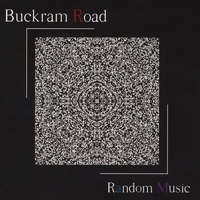
Open Standards Commitment
The Liberty Alliance is committed to creating technical standards that solve global identity management needs and can be easily implemented by the widest possible audience. We believe that technical standards must be interoperable and open in order to be most useful and to promote further innovation. Interoperable and open standards are particularly important to digital identity technology and processes as they influence business conduct and social interactions online. This is important to our members as well as the larger deploying marketplace which we support.
Our statement describes critical elements to an open standard and the development process we feel it should follow.
Many of our members have issued similar open standards calls. The Danish government has detailed the importance of open standards in a published paper which stresses the importance of defining “an open standard by its properties in its purest form to remove uncertainty, while recognising that in practice owners will choose the degree of openness they expect to provide the greatest return.”
An article in eGovernment News explains that the position of the Danish government is consistent with other European approaches:
The Danish National IT and Telecom Agency’s “pragmatic approach” to the definition of open standards is similar to the approach adopted by the European Commission’s IDA Programme. Indeed, according to the European Interoperability Framework for pan-European eGovernment services released by IDA in January 2004, open standards and open source software are two of the general principles that should be considered for any e-government services to be set-up at a pan-European level. The framework says that, in this context, "open" should mean the standard fulfils the following requirements:
· The costs for the use of the standard are low.
· The standard has been published.
· The standard is adopted on the basis of an open decision-making procedure.
· The intellectual property rights to the standard are vested in a not-for-profit organisation, which operates a completely free access policy.
· There are no constraints on the re-use of the standard.
The use of open standards is widely regarded as a cornerstone for the development of interoperable e-government services at local, regional, national and pan-European level. Speaking at the World Standards Day on 14 October 2003, EU Enterprise and Information Society Commissioner Erkki Liikanen stressed that "open standards are important to help create interoperable and affordable solutions for everybody. They also promote competition by setting up a technical playing field that is level to all market players. This means lower costs for enterprises and, ultimately, the consumer".
This approach and position has been endorsed by the New Zealand Government as well, after extensive research and reference of work by other organizations, resulting in similar statements on the definition of an open standard.
We welcome the industry in joining us in delivering open standards for the benefit of the marketplace, enterprises and end users.











































No comments:
Post a Comment